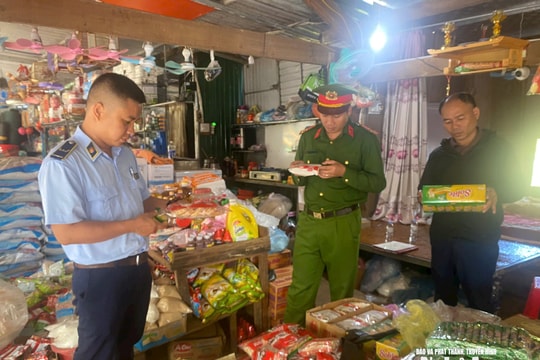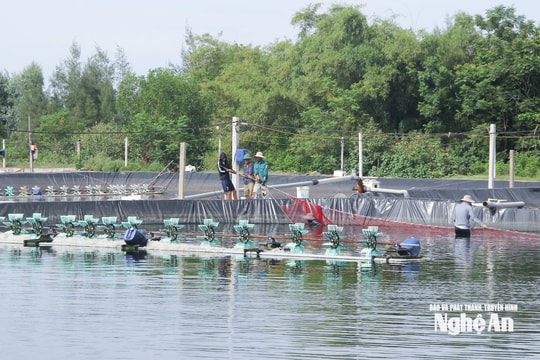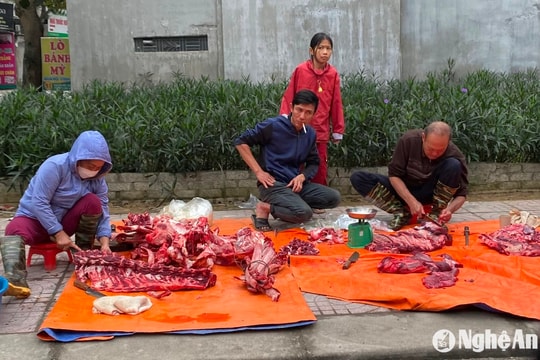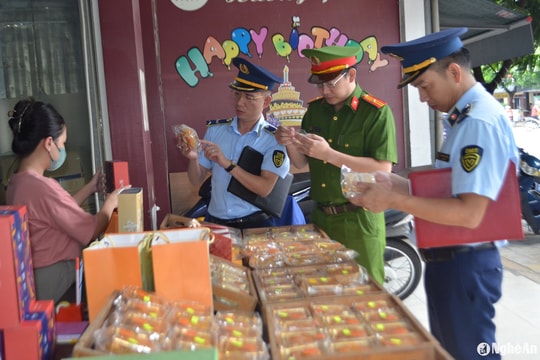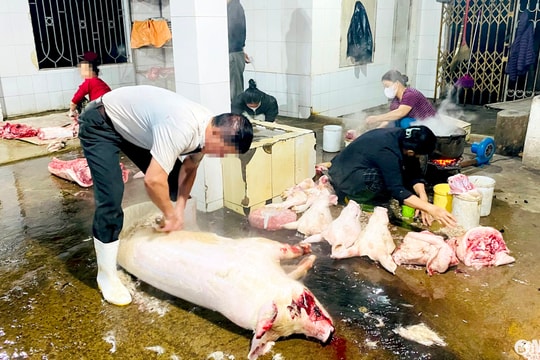The truth about washing chicken before cooking can be fatal
On social networking sites, there is a lot of information circulating that chicken should not be washed before boiling or cooking because it will spread the virus that causes Campylobacter - a type of bacteria that can be fatal.
According to research by the Food Standards Agency (FSA) in the UK, the habit of washing chicken before cooking can cause Campylobacter bacteria to spread to hands, surfaces, clothes and kitchen utensils due to the splashing of meat washing water. Scientists say Campylobacter bacteria cause illness to about 280,000 British people each year.
Campylobacter bacteria are a common cause of food poisoning in the UK. People who get sick usually recover within a few days, but the bacteria can cause long-term health problems.
Campylobacter bacteria can also be fatal, with those most at risk being children under five years of age and the elderly.
What is the truth of this matter?
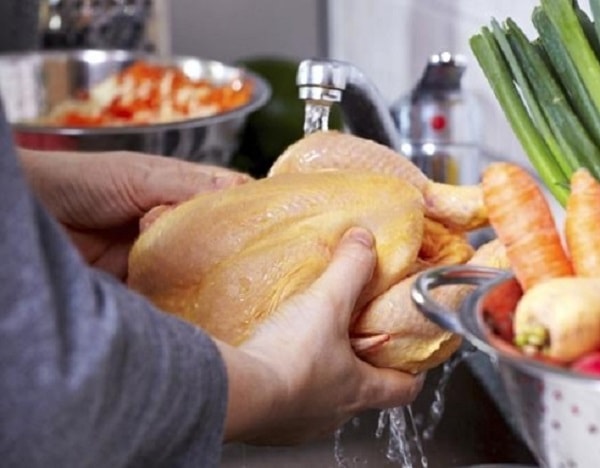 |
| Chicken meat must be washed thoroughly before cooking and when cooked, it must be thoroughly boiled to kill disease-causing bacteria. Illustration photo |
According to Dr. Doan Thi Tuong Vi - former Head of Nutrition Department of Hospital 198, the information that chicken should not be washed before boiling or cooking to avoid spreading disease-causing viruses is incorrect.
"One thing is for sure, no one will buy chicken from the market without washing it thoroughly and then putting it in a pot to cook? Who would dare to eat that kind of chicken? Most chicken meat is processed by hand, such as plucking feathers, butchering chickens, etc., and the environment is not hygienic. There are many places that butcher chickens, they only need a pot of boiling water to dip many chickens to clean the feathers and clean the internal organs, also done by the person who prepares the feathers. Meanwhile, processing by technological lines is concentrated in very small quantities," said Dr. Vi.
Chicken is processed on a centralized technological line according to the correct standards, strictly inspected before leaving the factory, consumers can trust without having to wash it before processing. However, to ensure safety, knives and cutting boards used for chopping, processing or marinating must still be washed thoroughly after use.
Raw and cooked utensils, knives and cutting boards should be separated, and the hands of the person preparing the chicken must be washed with soap. As for the chicken prepared yourself, you still need to wash it before cooking and when cooking, you need to boil it thoroughly to kill disease-causing bacteria.
Associate Professor Dr. Nguyen Duy Thinh (former staff of the Institute of Biotechnology and Food - Hanoi University of Science and Technology) also said that this is unreasonable. If food is not cleaned carefully before processing, it will not be hygienic and the risk of contamination with many types of more harmful bacteria is very likely to occur.
Campylobacter infection can come from drinking water, eating infected animals, and not from washing chicken with water. Therefore, whether we butcher chicken ourselves or buy it from the market or supermarket, we still have to wash it under running water. Then, rub a little salt on the chicken and rinse it with water before cooking.
Experts advise that, like many other fresh meats, chicken is very perishable and needs to be handled carefully before cooking. Proper handling and cooking will help eliminate the risk of infection. Use cold water and salt to wash the chicken inside and out, and dry it before cooking.
To avoid cross-contamination, everyone should note that after handling fresh poultry, it is necessary to clean all surfaces of tools, cutting boards, knives and hands with hot soapy water. A separate cutting board should be reserved for chicken. When preparing, use gloves, change aprons... In addition, everyone should also note that after boiling and cooking chicken, use it as soon as possible, do not leave it for too long to avoid spoilage and food poisoning. In case you do not use it immediately, you should store it in the refrigerator by packaging it or putting it in a sealed box in the bottom compartment of the refrigerator, avoid storing it in the same compartment with other cooked foods in the refrigerator.
According to Family & Society Newspaper
| RELATED NEWS |
|---|

